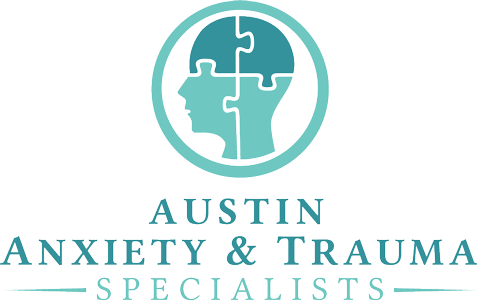**Major Spoilers for Season 4 Part 1**
Reader and viewer discretion advised: The Stranger Things series has always been strange, but Season 4 is the scariest yet—and is possibly triggering for some viewers. We recommend watching with a friend or loved one, especially for sensitive groups.
The Duffer Brothers’ hit series Stranger Things thrills sci-fi enthusiasts with demogorgons, a Shadow Monster, a telepathic heroine, and dark alternate dimensions. Yet Season 4 drops themes heavier than ever before: trauma and mental health.
You don’t have to be a sci-fi fan to appreciate how the show personifies (monsterfies?) trauma in the form of Vecna, this season’s Upside Down villain. Viewing trauma as an entity separate from ourselves can create a safe lens to analyze its traits without feelings of shame or guilt.
We’ve outlined four key takeaways from Volume 1 that highlight the reality of trauma and what you can do about it:
Trauma stalks before it attacks
Hawkins High’s school counselor, Ms. Kelly (Regina Ting Chen), counsels students Max (Sadie Sink), Chrissy (Grace Van Dien), and Fred (Logan Riley Bruner) before their symptoms worsen. All three exhibit some of the common symptoms of Post-Traumatic Stress Disorder (PTSD):
They re-experience the traumatic event repeatedly through flashbacks and nightmares. As seen in their counseling files, Max, Chrissy, and Fred’s sleep is disrupted by these terrifying nightmares.
They actively try to avoid people, places, and things that remind them of the traumatic event. In the beginning of Volume 1, we learn Max has been distancing herself from her friends since the death of her step-brother, Billy (Dacre Montgomery).
She also avoids talking about the event and appears more irritable and agitated than usual when her friends try to confront her. Chrissy hides her eating disorder and Fred and basketball player Patrick (Myles Truitt) keep silent about their visions, even as they worsen.
They feel detached from close friends and family. We don’t get to see Chrissy with any of her friends or family in this volume. Instead, she seeks help from Eddie Munson (Joseph Quinn) to purchase narcotics. He seems to be the only one who understands her feelings of hopelessness and “losing your mind.”
Chrissy also appears always on guard and easily frightened, jumping at the subtlest of noises and fearfully checking over her shoulder.
Each victim experiences headaches, nosebleeds, and nightmares leading up to their deadly encounter with Vecna. Similarly, trauma stalks before it strikes with its most crippling hand. To prevent symptoms of trauma from worsening, it’s important to recognize the signs.
Read: 10 Signs You’re Living with Unresolved Trauma & How to Evict It
Trauma can distort reality
Vecna feeds Max visions of Billy blaming her for his death. A cop calls Fred a murderer for surviving a car crash his friend perished in. Chrissy’s demonized mother verbally abuses her and Nancy (Natalia Dyer) stands in the pool Barb died in as it fills with blood.
PTSD distorts our view of the past the same way Vecna does. He holds a mirror to his victim’s cognitive distortions, or false views of reality our brain tricks us into believing are true. Whenever he manipulates a memory, traumatizing events from the past devolve into grotesque, horrific visions that threaten, gaslight, and blame. Unchecked, these distortions can become part of a negative belief system that harms more than your self esteem.
Read: 7 Cognitive Distortions to Uproot From Your Belief System
Music opens a psychological gate
In the heart-wrenching episode “Dear Billy,” Kate Bush’s “Running Up That Hill” is Max’s salvation. Listening to her favorite song opens a gate back to reality and gives her the strength she needs to tear across the threshold back to her friends.
Like Billy’s death, traumatic experiences can be difficult to process. These memories stick in the part of the brain they were originally registered in and resist engagement or alteration, inhibiting processing and verbalizing emotions. These emotions build a bridge to the part of the brain where trauma resides and helps patients tap into their feelings, even if they don’t totally understand them yet.
Since its development for treatment of veterans after World War II, music therapy has helped many people with PTSD. Some benefits of music therapy include:
- a sense of security and openness to rehabilitation sessions
- calmness through heart rate regulation and relaxing of tight muscles
- emotional up-regulation aid in times when depression makes life feel joyless
- drowning out negative, ruminating thoughts by enjoying pleasing sounds
- grounding in the present rather than the past
Read: Self-care Strategies for Trauma Relief
Enlist the help of your supporters
One of the major themes of each Stranger Things season is friendship, and Season 4 is no different. Each of Vecna’s victims kept their trauma hidden from their friends. Even Eleven was without a support system when Number One (Jamie Campbell Bower) began preying on her.
Fred, Chrissy, and Patrick suffered in silence. You don’t have to. Once Max recognized her symptoms were signs, she opened up to her friends. Tell your support system what’s going on so they can help when you need it.
We’d like to point out that while Ms. Kelly seems to be a totally unhelpful counselor, her patients are dealing with an interdimensional psychic monster after all. Also, she might be working for him.
Vecna isn’t real, but the trauma he represents is. If you’re experiencing regular symptoms of PTSD that disrupt your life, it may be time to enlist the help of a trained professional. Our therapists at Austin Anxiety and Trauma Specialists are on your side. We offer online counseling to all residents of Texas and in-person sessions at our Austin branch. Book a session with us today so you can get back to running up that hill.






